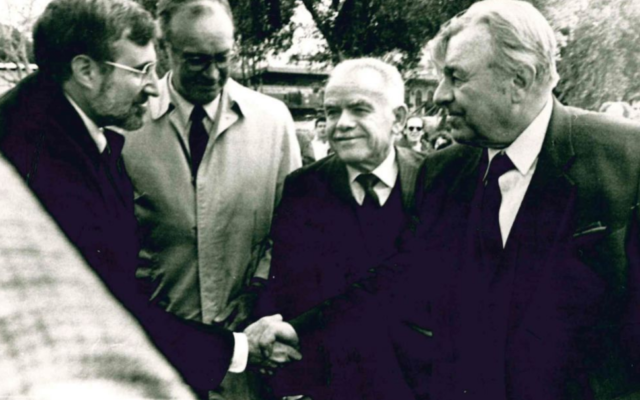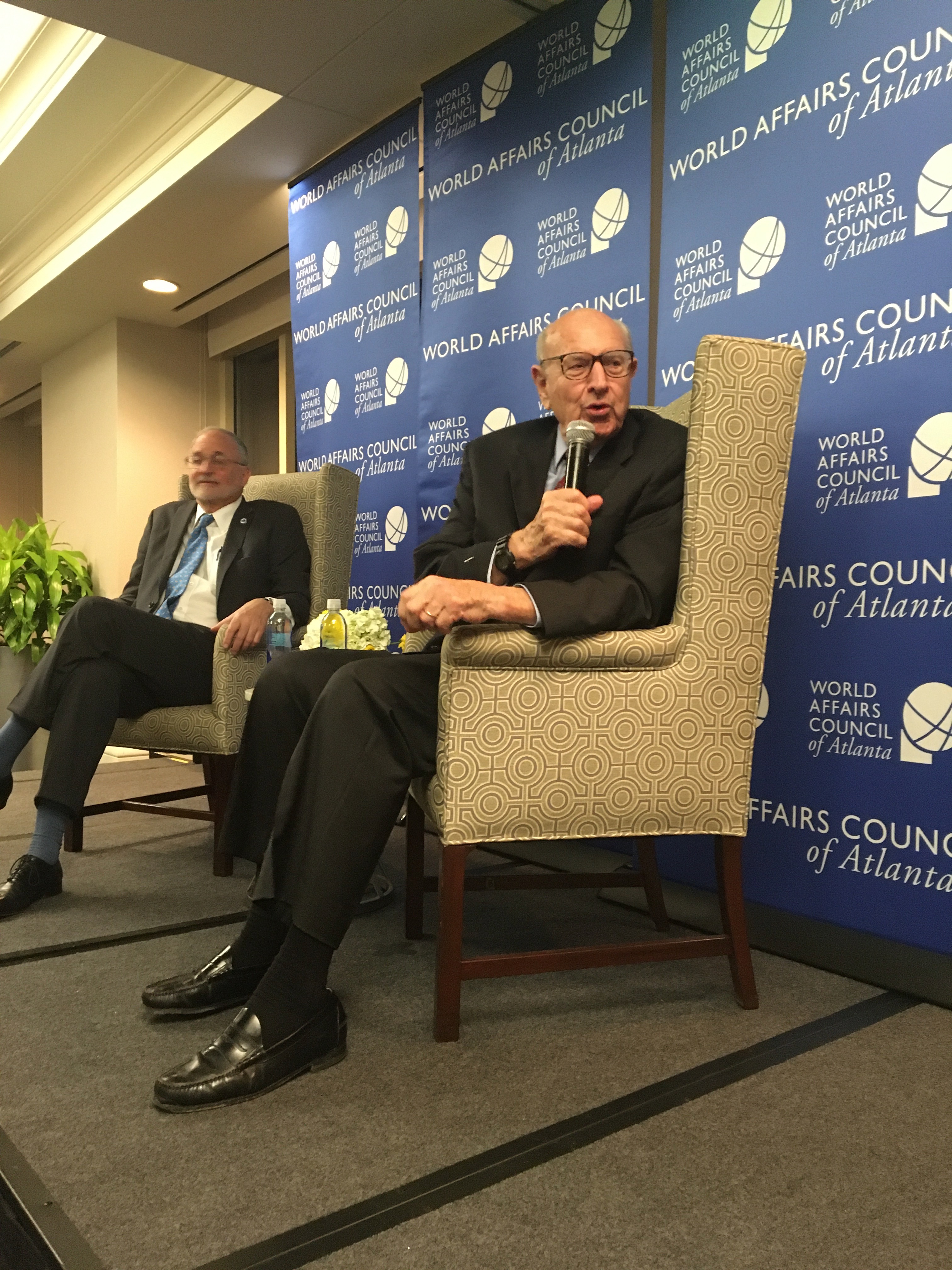Diplomacy Expert Sees Little Hope in Middle East
Thomas Pickering, former U.S. ambassador to Israel, described the diplomatic standoff between Israel and the Palestinians as “a mess.”

One of America’s top diplomats during the latter decades of the 20th century visited Atlanta last week and offered a generally gloomy assessment of America’s foreign policy in the Middle East. Thomas Pickering served as the U.S. ambassador in such places as India, Russia, Jordan and Nigeria. He was also the U.S. ambassador to Israel during the Reagan administration from 1985 to 1988.
Pickering described the diplomatic standoff between Israel and the Palestinians as “a mess.”
Speaking to the World Affairs Council of Atlanta Nov. 18, he said he didn’t have much hope that either of the leaders of the United States and Russia could do much about it. Neither, he believes, has any idea of how to solve the situation.
“I don’t think President Putin has an answer to that, nor do I think does President Trump. And so that is and will continue to be one of the hardest situations to deal with, but perhaps still one of the most important ones in unlocking long-term conflict among the nations of the Middle East.”
Pickering was also critical of the Trump administration’s recent actions to move the U.S. embassy to Jerusalem, to recognize Israel sovereignty over the Golan Heights, and to reverse America’s long-standing policy and declare that Israel’s settlements on the West Bank did not violate international law.

“I do not and did not believe we should move our embassy to Jerusalem until such time as Jerusalem is settled. The notion that we should suddenly make a statement when Israel had never claimed that the Golan Heights were part of Israel, that the Golan Heights were now part of Israel, it was getting ahead of the Pope and the Vatican, so to speak. And so, in whatever way that that took place, for whatever lunatic reason, it isn’t adding to the capacity to resolve the problem. It’s adding to the capacity to be divisive.”
Nor does he believe that the United Nations have much influence over international trouble spots. He described the situation in the United Nations Security Council, where the United States, China and Russia are permanent members, as almost in “a Cold War posture.”
Pickering, who served as America’s ambassador to the United Nations under President H. W. Bush, was deeply involved in marshaling support there for the Gulf War in 1991. He worked to create a broad international consensus against Iraq’s decision under Saddam Hussein to invade Kuwait. Today he believes such action would be nearly impossible.
“We are stuck on almost every important issue,” Pickering maintains. “We do not share a common vision of how to proceed.”
He believes it’s not easy to change that. In part it is only because of the hostility between the U.S. and those who have never been its friends, China and Russia. Today it is also because of the divide between the U.S. and those who have been its friends in the past, in Europe and Asia.
“Were we more interested in continuing to have strong relations with our allies and partners rather than being America alone, I think we would do better in the United Nations. Because it’s the strength that we had in the U.N. with strong sets of allies and friends that made a real difference when push came to shove on critical issues.”
Pickering ended his career as President Clinton’s Undersecretary of State for Political Affairs, the third most important official at the State Department from 1997 to 2001. It was generally believed in that period, despite the assassination of Israel’s Prime Minister Yitzhak Rabin in 1995 and the apparent failure of the Oslo Accord, that there was still some hope that peace might be achieved.
Today Israel has apparently shown little interest in reaching out to the Palestinians, and the Palestinians have indicated that they have no interest in negotiations. If that should ever change Pickering sees only two possibilities for a solution, and he doesn’t believe that either has much chance of success.
The first, the single state solution he argues is impossible because it would mean the end of the Jewish state. The other solution, the creation of two states is not much better, particularly because the Israeli settlements that dot the West Bank make a viable Palestinian state almost impossible. That solution he believes will be “very hard.”



comments